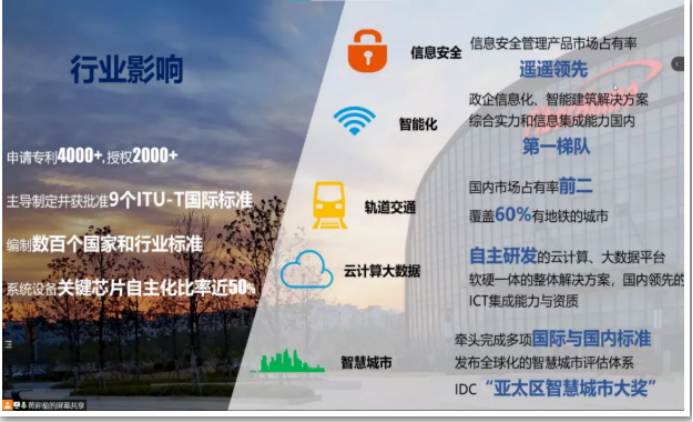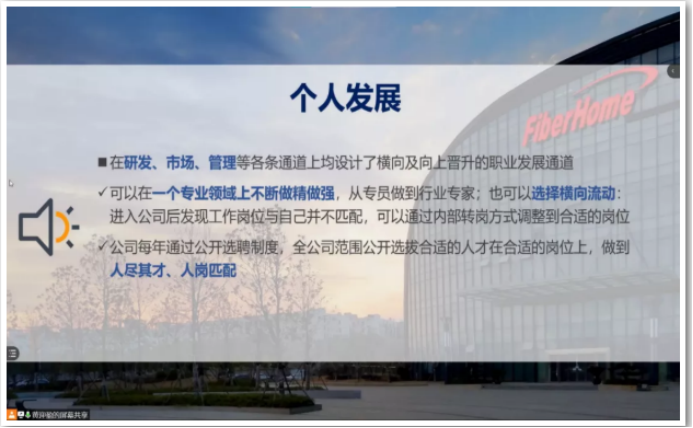Source: cugjdxy
On the afternoon of August 31, 2021, the “Intelligent” Employment Practice Group held a practice exchange meeting with FiberHome group. Due to the requirements of epidemic control, Luo Caiwei, counselor of the School of Mechanical Engineering and Electronic Information, Lin Lin, manager of Fiberhome group, and Huang Yingying, member of Human Resources Department (also an alumnus of CUG) attended the meeting online.
It is reported that FiberHome Telecommunication Technologies Co., Ltd., established in 1999, is a scientific research and industrial entity integrating three strategic technologies in the field of optical communications in China. It has been approved by the state as “National Optical Fiber Communication Technology Engineering Research Center”, "Asia-Pacific Telecommunication Union Training Center", "MII Optical Communication Quality Testing Center", "National High-tech R&D and Development Plan Achievement Industrialization Base", etc., and has a unique strategic position in promoting China’s information technology research, industrial development and national security.


First of all, Huang Yingying introduced the industry influence and employee development space of FiberHome Group. She pointed out that in terms of personal development, the company adhered to the principle of giving full play to people’s talents and person-post matching, forming a Y-shaped channel for two-way development. Employees could choose horizontal mobility. If the post was not suitable, they could find the right post through internal job transfer. When talking about the reasons for joining FiberHome Group, Huang Yingying pointed out the following points: first, as a state-owned enterprise, FiberHome Group was not only superior to many enterprises of the same type in background and platform, but also cares for new employees very much; secondly, in the company, she learned the methods of company performance management, which could help her effectively solve the problems in her work.
After that, Lin Lin summarized three key points on how graduates should choose a company to join, namely, platform, future and salary. In response, one member asked, "What kind of ability does the company value most when recruiting employees?" Lin Lin said that compared with the depth of knowledge, the company would pay more attention to employees’ interpersonal and communication skills. He compared the ability of students to an iceberg, and pointed out that schools paid more attention to the cultivation of knowledge and skills on the iceberg, while social enterprises paid more attention to the ability of communication, organization and coordination under the iceberg.
Finally, Luo Caiwei and Lin Lin discussed the topic of “strengthening cooperation between university and enterprise and jointly cultivating students”. They agreed that the university and enterprise should strengthen long-term cooperation and exchanges, and university should encourage students to increase the number of internships in the company, so that students could have a better understanding of the company's working environment and corporate culture through continuous internship exchanges. This would not only enable students to clearly judge whether they wanted to join the company, but also enabled enterprises to gain students’ recognition, reduce the training cost of enterprises for students who joined the company, and achieve "win-win" between university and enterprise.
Through this investigation, the team learned the following points. First, compared with professional categories, enterprises pay more attention to individual abilities when recruiting employees. Second, college students should have a clear career plan and actively understand the specific situation of the industries they are interested in, so as to improve the chances of being hired in employment. Third, when choosing a company, fresh graduates should pay more attention to the long-term problems of the company, such as employee treatment, company platform and personal development path, and the invisible conditions such as corporate culture and corporate history. Fourth, after new employees join the company, they should correctly view the relationship between overtime and self-improvement.